Introduction
Selecting the appropriate e-commerce platform can significantly impact the success of your online business. In the world of digital retail, the debate between Shopify vs WooCommerce is ongoing and pivotal. Each platform offers unique features and functionalities, making deciding which is the best fit for your online store is challenging.
This piece offers a detailed examination of Shopify and WooCommerce, highlighting their unique attributes and similarities, to help you make an educated decision for your e-commerce project.
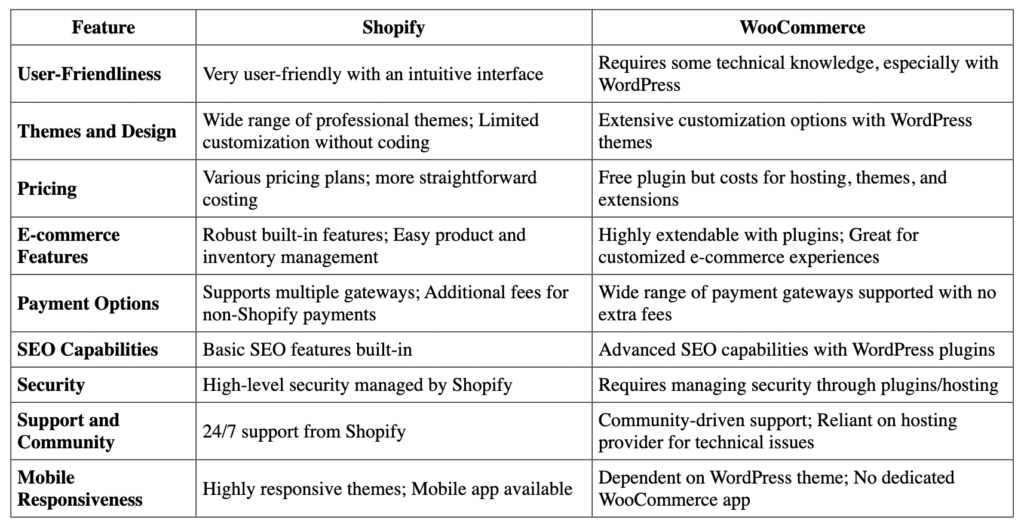
Ease of Use
Shopify is renowned for its user-friendliness. With its intuitive interface, setting up a store is straightforward, even for beginners. On the other hand, WooCommerce, a WordPress plugin, offers flexibility but requires a bit more technical know-how.
When considering Shopify vs WooCommerce, it’s essential to understand the different approaches they take towards user experience. Shopify’s streamlined setup process simplifies tasks like adding products, creating collections, and designing your storefront, making it accessible to users with little to no technical background. In contrast, WooCommerce, while offering a robust and flexible platform, leans towards those who are comfortable with WordPress. This means it can offer more customization options, but it also involves a steeper learning curve, especially in aspects like theme customization and plugin management. This distinction is a critical factor in the Shopify vs WooCommerce debate, as it directly impacts the time and effort required to launch and manage an online store.
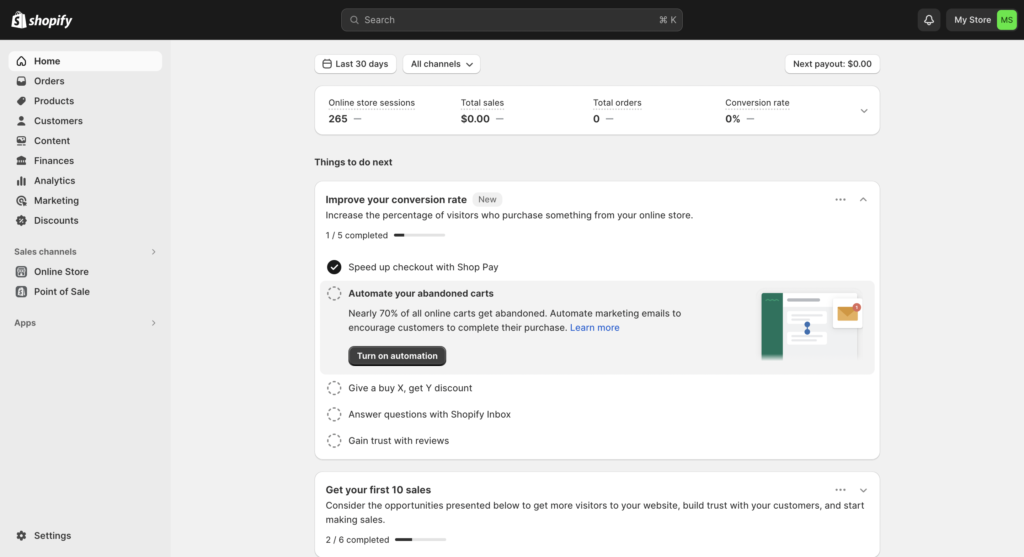
Design and Customization: Shopify vs WooCommerce
Shopify provides a range of professional themes, but customization can be limited unless you’re familiar with its proprietary coding language, Liquid. WooCommerce, being part of the WordPress ecosystem, offers extensive customization options, especially for those familiar with WordPress.
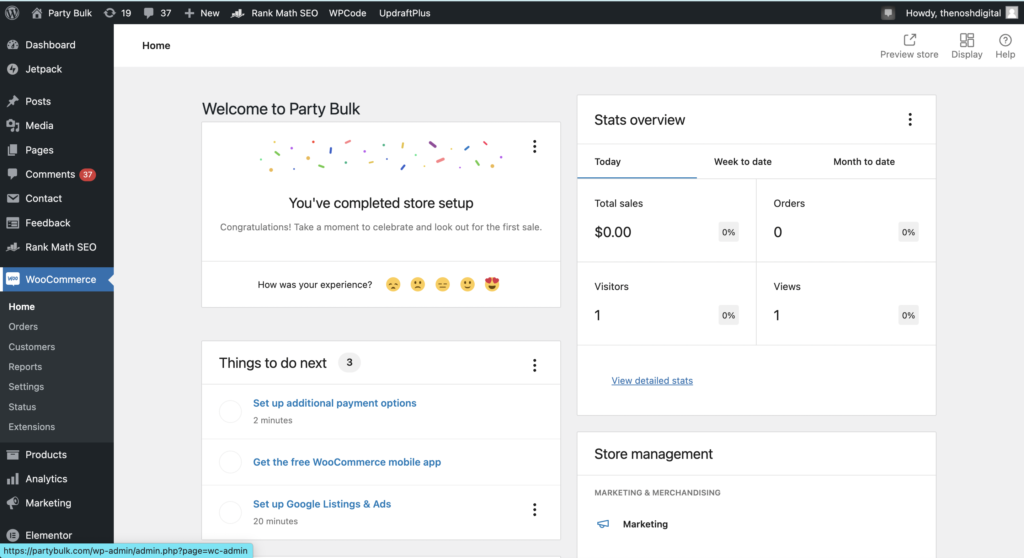
Pricing and Plans
Discussing WooCommerce pricing vs Shopify, WooCommerce is a free plugin, but hosting, themes, and extension costs can add up. Shopify offers tiered pricing plans, including hosting and SSL, making budgeting more straightforward.
When delving deeper into the Shopify vs WooCommerce comparison, especially in terms of pricing, it’s crucial to consider the long-term financial implications for your online store. Although WooCommerce is a free plugin, its reliance on external hosting, paid themes, and various extensions can result in unpredictable expenses. This is particularly relevant for businesses that require advanced features or high levels of customization, as these often necessitate premium plugins. On the flip side, Shopify’s pricing, while initially appearing higher, includes essential elements like hosting, security, and an SSL certificate, offering a more predictable cost structure. This bundled approach of Shopify can be particularly appealing for new business owners seeking a clear, upfront understanding of their monthly expenses, a vital aspect in the Shopify vs WooCommerce debate for budget-conscious entrepreneurs.
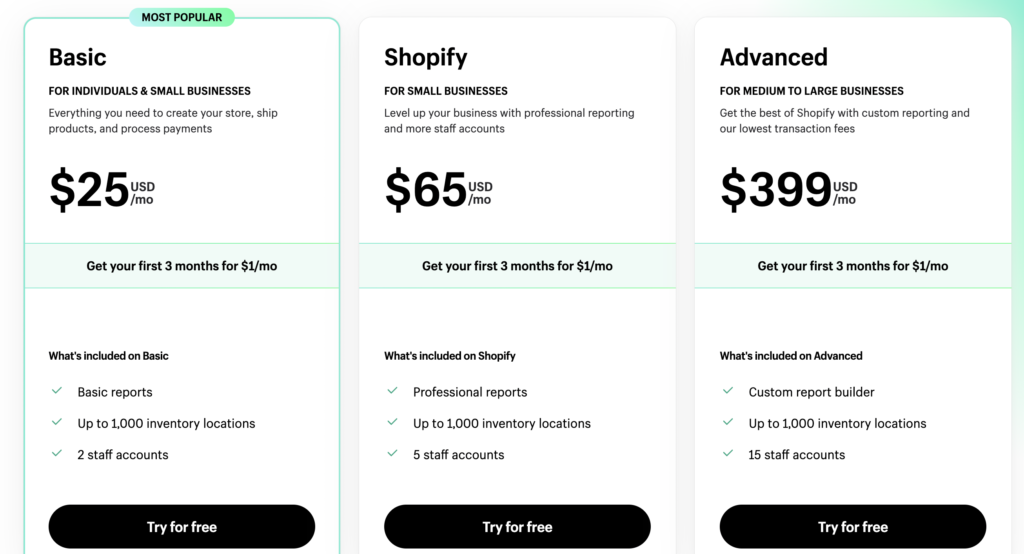
In the comparison of WooCommerce and Shopify, particularly concerning the pricing refund policy, it’s evident that WooCommerce’s free entry point contrasts with potentially variable costs for hosting and plugins, whereas Shopify’s straightforward pricing includes essential features, offering clarity and predictability. Understanding each platform’s refund policies is also key, as they directly affect budget planning and long-term financial strategy for e-commerce entrepreneurs.
E-commerce Features
Both platforms offer robust e-commerce features. Shopify has an edge with its built-in features, while WooCommerce’s extendability through plugins is unparalleled.
In the Shopify vs WooCommerce comparison, it’s important to highlight how each platform caters to different business needs through its e-commerce functionalities. Shopify offers an extensive array of integrated features ready to use immediately, encompassing multiple sales channels, abandoned cart recovery, and various shipping options. This makes Shopify an attractive option for those seeking a turnkey solution with minimal setup.

On the other hand, WooCommerce’s strength lies in its flexibility and adaptability. Being an open-source platform, it allows for extensive customization through a vast library of plugins and integrations. This aspect of WooCommerce is particularly advantageous for businesses with unique requirements or those looking to scale in a specific direction. Therefore, when weighing Shopify vs WooCommerce, businesses should consider their current needs, their future growth plans, and the level of customization they anticipate requiring.
Payment Processing
Shopify and WooCommerce support multiple payment gateways. However, Shopify charges extra fees for using payment providers other than Shopify Payments.
In Shopify vs WooCommerce, the approach to payment gateway support and associated fees is a critical consideration for online store owners. While both platforms offer compatibility with a wide range of payment gateways, Shopify’s policy of charging additional transaction fees for using payment providers other than its own Shopify Payments can impact overall costs. This is particularly significant for businesses anticipating a high volume of transactions or operating in regions where Shopify Payments might not be available.
Conversely, WooCommerce allows the integration of numerous payment gateways without imposing additional transaction fees, offering a more cost-effective solution. This difference in payment gateway strategy is an essential aspect to evaluate in the Shopify vs WooCommerce comparison, especially for businesses where transaction fees could represent a significant expense.

Performance and Scalability
Both platforms are scalable, but Shopify, with its dedicated hosting, generally offers more reliability in performance.
Scalability is a crucial aspect of any growing online business, and in this regard, both Shopify and WooCommerce offer robust solutions. However, Shopify’s advantage lies in its dedicated hosting environment, which generally provides more consistent and reliable performance, especially during traffic surges or high sales periods. This is particularly beneficial for businesses that experience seasonal spikes or rapid growth, as Shopify’s infrastructure is designed to handle increased loads without significant slowdowns or downtime.
In contrast, WooCommerce’s performance can vary depending on the hosting solution chosen by the user. While it offers great scalability, the responsibility of maintaining performance levels during traffic peaks falls on the user, requiring careful selection of hosting services and potentially more technical oversight. This difference in the hosting and performance aspect is a key factor to consider in the context of scalability and reliability when comparing Shopify and WooCommerce for your e-commerce needs.
Support and Community
Shopify provides 24/7 support, a feature particularly beneficial for beginners. WooCommerce support is reliant on the community and the hosting provider.
The level and type of support offered by Shopify and WooCommerce play a significant role, particularly for those new to e-commerce. Shopify’s 24/7 support is a standout feature, offering beginners and seasoned users alike the reassurance of constant assistance. Whether it’s technical issues, setup queries, or feature-related questions, Shopify’s dedicated support team is readily available, providing a safety net that can be crucial for businesses without in-house technical expertise.
Comparing Support Structures: WooCommerce’s Community-Driven Approach vs. Direct Support Services
In contrast, WooCommerce’s support structure relies heavily on the community and the selected hosting provider. While this can lead to a diverse range of insights and solutions, the lack of direct, official support from WooCommerce means users often need to be more proactive and resourceful in seeking assistance. This difference in support services is a key consideration, especially for those evaluating Shopify and WooCommerce based on their own technical capabilities and the level of support they anticipate needing for their online store.
Security
Shopify takes care of security at the hosting level. WooCommerce, being self-hosted, requires you to manage security, which can be a double-edged sword.
Security is a critical issue for every online business, and the strategies adopted by Shopify and WooCommerce are notably distinct. Shopify simplifies security management by handling it at the hosting level. This means users benefit from built-in security measures like SSL certificates and PCI compliance, ensuring a secure shopping environment without the need for additional setup or expertiseThis aspect is especially beneficial for business owners who might lack in-depth technical expertise.

On the other hand, WooCommerce’s self-hosted nature offers more control but also adds responsibility. Users need to actively manage their website’s security, including regular updates, backups, and possibly integrating additional security plugins. While this offers more customization and control over security protocols, it also requires a higher level of vigilance and technical understanding. The varying approaches to security management between Shopify and WooCommerce are a significant consideration for businesses evaluating their options. This is particularly relevant in terms of the resources and technical skills they are able to invest in ensuring their online presence is secure.
SEO Capabilities
Considering Shopify vs WordPress (and by extension WooCommerce), WordPress has an edge in SEO capabilities due to its extensive range of SEO plugins.
When evaluating the leader in SEO between WooCommerce and Shopify, WooCommerce’s edge is underscored by the diverse and plentiful plugin options that WordPress provides. WordPress, at its foundation as a content management system, features a comprehensive suite of SEO plugins, such as Yoast SEO, All in One SEO Pack, and RankMath SEO. These tools empower users to effectively optimize their sites for search engines. They allow for intricate customization of SEO components like meta tags, sitemaps, and keyword optimization, providing a degree of control essential for achieving higher search engine rankings.

While Shopify also provides SEO features, they are more standardized and less customizable compared to the extensive, plugin-enhanced capabilities of WooCommerce. This variance is crucial in determining which platform, WooCommerce or Shopify, stands out for companies that depend on organic search traffic and carefully developed SEO tactics for their online victory.
Extensions and Integrations
Here, WooCommerce shines due to its WordPress roots, offering a vast array of plugins. Shopify also offers various integrations but typically at an additional cost.
The dynamic of WooCommerce vs Shopify market share is greatly influenced by their respective approaches to extensions and integrations. WooCommerce, with its WordPress background, offers an extensive array of plugins, many of which are available for free or at a minimal cost. This wide range of options allows for significant customization, catering to a variety of business needs and preferences. This level of adaptability is a major contributor to WooCommerce’s popularity, especially among those who value the ability to tailor their e-commerce platform extensively. In contrast, Shopify, while offering various integrations, often includes additional costs for these features. While this can increase the overall expense for businesses seeking advanced functionalities, it provides a more seamless and integrated user experience. Shopify’s streamlined approach to integrations is particularly suited for users looking for ease of use and consistency within their e-commerce platform.
Mobile Responsiveness
Both platforms are mobile responsive, but Shopify has a slight edge with its better-optimized themes.
In the Shopify vs WooCommerce debate, mobile responsiveness is a key factor. Shopify gains an edge with its mobile-optimized themes, ensuring that stores function seamlessly across devices, a critical feature in today’s mobile-centric market. While WooCommerce also supports mobile responsiveness, the level of optimization often depends on the chosen WordPress theme. This difference in mobile readiness can be a deciding factor for businesses prioritizing a robust mobile user experience in their Shopify vs WooCommerce evaluation.

WooCommerce themes
When exploring the best themes for WooCommerce, a few stand out for their versatility, design quality, and ease of use. Divi, known for its powerful drag-and-drop builder, offers unparalleled customization options, making it a top choice for creating unique and engaging online stores. Astra, another leading theme, is celebrated for its lightweight, performance-focused design, ensuring fast loading times and a seamless user experience.
Flatsome, with its focus on responsive design and extensive UX options, is ideal for crafting intuitive and visually appealing eCommerce sites. Shopkeeper brings a perfect balance of design and functionality, offering elegant layouts with straightforward customization features. Lastly, Porto’s wide range of pre-built demos and compatibility with various plugins makes it a versatile choice for businesses looking to create a robust and professional online presence. Each of these themes offers a unique set of features and design elements, catering to diverse eCommerce needs and aesthetic preferences.
User Reviews and Testimonials
Incorporating user reviews, and comparing Shopify or WooCommerce, can provide real-world insights.
Including user reviews in the Shopify vs WooCommerce comparison offers valuable, real-world perspectives. These reviews often highlight practical experiences and nuances that might not be evident in standard feature lists or technical specifications. By examining user feedback, potential users can gain insights into how each platform performs in actual business scenarios, such as customer support experiences, ease of use, and scalability.
This perspective can shed considerable light on the discussion of Shopify versus WooCommerce, offering insights into the everyday usage and obstacles encountered by real-world users, thus contributing to a better-informed decision-making process.
Pros and Cons Summary
A quick summary of pros and cons can help readers weigh their options in the Shopify vs WooCommerce debate.
A concise summary of the advantages and disadvantages is instrumental in clarifying the Shopify vs WooCommerce debate. This approach distills the complex array of features and considerations into easily digestible points, aiding potential users in quickly assessing which platform aligns best with their specific business needs. In the Shopify vs WooCommerce comparison, a pros and cons list can highlight Shopify’s user-friendliness and comprehensive customer support against WooCommerce’s customization flexibility and integration capabilities. This kind of summary streamlines the decision-making process and guarantees that users make knowledgeable choices, grounded in a clear comprehension of the distinct benefits each platform provides for their individual online business endeavors.
Summary
Deciding between Shopify and WooCommerce is more than just choosing an e-commerce platform; it’s about selecting the right partner for your online business journey. Both Shopify and WooCommerce have their strengths and cater to different needs and skill levels.
Shopify excels in user-friendliness, extensive support, and ready-to-use functionalities, presenting itself as an ideal option for those seeking a straightforward, all-encompassing solution. Conversely, WooCommerce shines with its unmatched adaptability and personalization options, perfectly suited for individuals with particular needs or those well-versed in WordPress.
In the debate of Shopify vs WooCommerce, there is no one-size-fits-all answer. Your choice should align with your business goals, technical expertise, and growth plans. Consider your priorities, whether it’s the simplicity and support of Shopify or the customization and control of WooCommerce.
Remember, your e-commerce platform is a fundamental part of your business infrastructure. Take the time to weigh the pros and cons of Shopify vs WooCommerce, keeping in mind your long-term business strategy. By making an informed decision, you’ll set a solid foundation for your online store’s success.
FAQs
Is it better to use Shopify or WooCommerce?
Choosing between Shopify and WooCommerce hinges on your needs and tech skills. Shopify is user-friendly and all-in-one, great for beginners or hassle-free setup seekers. WooCommerce, being open-source and integrated with WordPress, offers more flexibility and customization, ideal for those comfortable with technical website management or needing tailored e-commerce solutions.
Why switch from WooCommerce to Shopify?
Switching from WooCommerce to Shopify can be beneficial if you’re looking for a more streamlined, user-friendly platform that requires less technical maintenance. Shopify offers a hosted solution, meaning it takes care of hosting, security, and updates, which can simplify the management of your online store. It’s also a good choice if you value 24/7 customer support and a more straightforward approach to scaling your business. Additionally, Shopify’s built-in features and integrations might be more aligned with your business needs compared to the DIY nature of WooCommerce.
Should I use Shopify or WordPress?
Choosing between Shopify and WordPress (with WooCommerce for e-commerce) largely depends on your priorities. If you need a dedicated e-commerce platform that is easy to set up and manage, with comprehensive customer support, Shopify is the better choice. However, if you require a website with strong content management capabilities, along with the flexibility to customize and control every aspect of your e-commerce store, WordPress with WooCommerce would be more suitable. WordPress is also preferable if blogging and content marketing are central to your business strategy.
What is WooCommerce best for?
WooCommerce excels for businesses needing extensive customization and control of their online store. It’s especially fitting for existing WordPress site owners looking to incorporate e-commerce capabilities. Ideal for users seeking particular features or integrations accessible via a wide range of WordPress plugins, WooCommerce is a top pick for companies seeking an initially free, cost-effective option and possess the technical know-how to tailor and maintain their e-commerce platform.
Follow Digital Online Tools for more Knowledge Base.


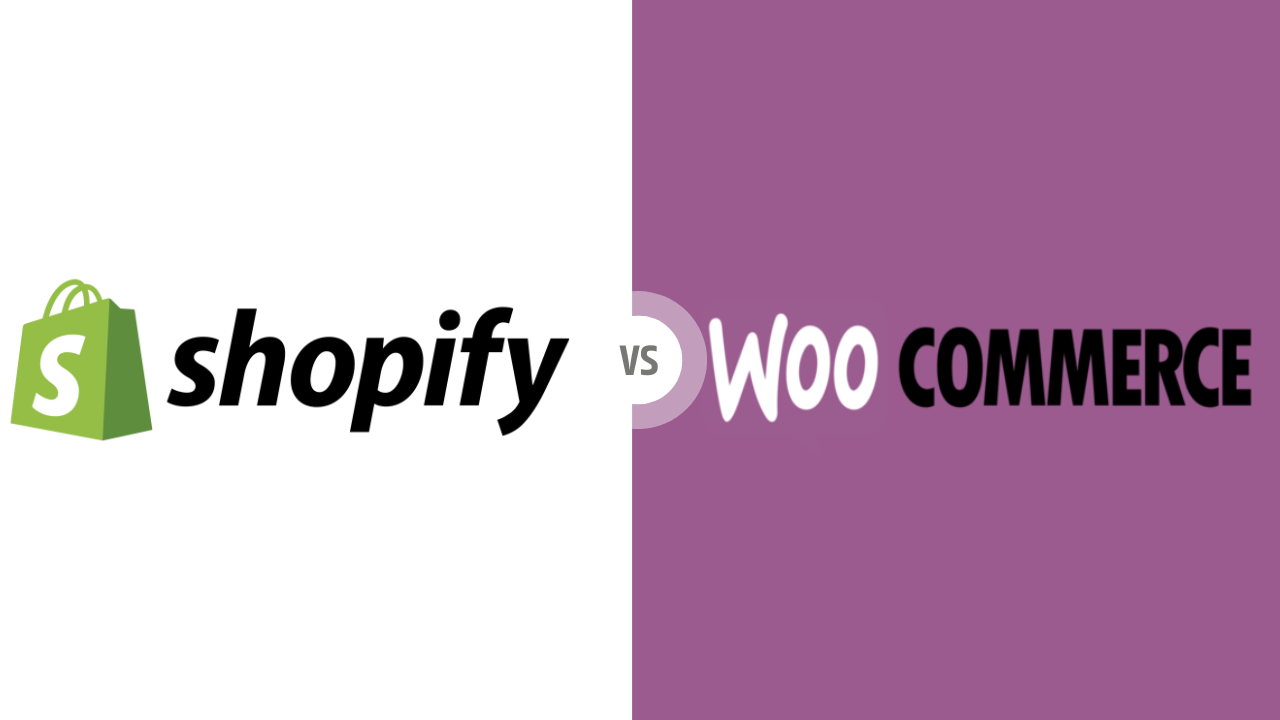
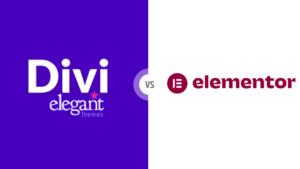


Pingback: Divi Theme: Revolutionizing WordPress Websites for Beginners and Pros - Digital Online Tools
Pingback: Discover Elementor: Web Designing Simplified - Digital Online Tools